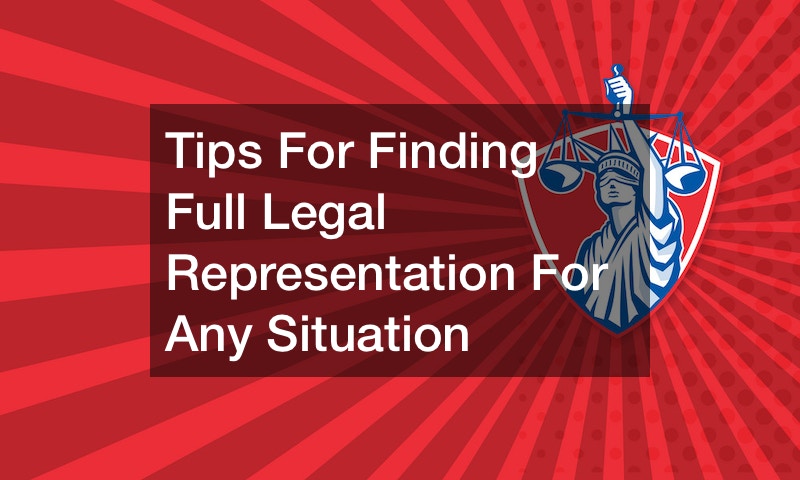
How can you define law? What are the types of law to study? A law can be defined as a rule of conduct stating what must or must not be done. Rules are different from laws because rules are guides for people to abide by while laws are taken very seriously, and action will be taken if the law is broken however small the violation may seem. Laws are made to protect individuals in society, whether it is personal injury law or any other type of law. There are a variety of areas to study in law. Still, due to certain circumstances, sometimes this protection does not exist, leading us to question how we can ensure these laws are put in place correctly so that injustice is prevented. For instance, in a divorce scenario, there may be a need to engage a custody law office.
Aspiring lawyers must choose a specialty to focus on. Some people choose one kind of law and stick with it, while others will change specialties as they go along. Sometimes the choice is made for you; some colleges only offer certain degrees, and sometimes your past work experience may lead you towards a specific type of law. All in all, it is important to know what are the types of law to study.
Even though the law is a fairly common topic globally, not everyone knows what it means. In general, laws are rules set out by a governing body that everyone must obey. These rules can include everything from treating other people to what happens when a citizen breaks a rule, the laws can be applied in different departments such as the personal injury law office which is common in today’s world. Employees are also significantly seeking a workmans compensation lawyer to help with different claims.
So many laws exist that it would be impossible for an average person to learn them all within their lifetime. Fortunately for these people, there are plenty of different types of law they can focus on to expand their knowledge base. Depending on which area you are passionate about, you can choose a relevant area of study. Do you wish to become a domestic violence lawyer? You can choose the right area of law to specialize in with the know-how of what are the types of law to study? Below are some areas of law that you can study:
Comparative Law
When seeking information on what are the types of law to study, it is vital to find out what certain areas deal with. Comparative law is defined as studying the similarities and differences between the legal systems of different countries. Law can be seen as social science because it affects not only countries but also people by providing rules to live by.
Law also affects politics, economics, society, and culture. The main purpose of comparative law is to improve understanding between nations concerning their similar or different laws to promote cooperation through mutually beneficial methods for the advancement of justice.
Comparative law is not restricted solely to civil law jurisdictions as it can also be applied to mixed jurisdictions. This allows for a wider range of topics that can be studied, including public law, company law, family law, or procedural law. There are various subgroups within comparative law: historical where similarities are found between countries based on similar roots; systematic, where differences are analyzed across different national laws applying uniform principles or concepts; and functional, where differences are explored by examining how other nations’ laws work in practice.
Civil Law

Are you wondering what are the types of law to study? If yes, you should know about civil law. Civil law is defined as a legal system relying on written codes as an area of study in law. This contrasts with common law systems, where decision-making is based mainly on case law.
Common themes found among countries that follow civil law include codification, legal institutions with an adversarial approach to dispute resolution, strong protection for private property rights, and judicial review.
Private Law
As a branch of study in civil law, private law is defined as the laws that establish and regulate relationships between individuals. As a form of law, it is concerned with the rights and duties that arise from transactions between private entities or individuals.
Private law can be split into distinct categories. Contractual obligations, also known as contract law, govern the terms and conditions upon which two parties enter into a contractual agreement. There are two main types of contracts: unilateral contracts where only one party has to perform any obligation under the contract, and bilateral contracts where both parties must exchange performances.
In addition, on top of knowing what are the types of law to study, there are different forms of contract, such as a real, verbal, or implied contract. Furthermore, certain legal requirements affect specific contracts, such as those required for a valid real estate sale. When a contract is breached, the non-defaulting party can either claim damages or seek specific performance.
Tort Law

When researching what are the types of law to study, one of the most common areas is tort law. Tort law concerns civil liability for an injury to another person, which means that the responsible party must compensate the victim for any loss or harm suffered. There are two general categories of intentional torts: assault, battery, or false imprisonment, where there is direct physical or mental harm, and trespass when indirect physical harm from an object in motion.
In addition, it is important to note that negligence can be grounds for both tort and criminal proceedings depending on the circumstances in which a defendant acted. Civil liability may arise in cases involving medical malpractice, product defects, or vehicle accidents cases handled by a car accident lawyer.
It entails physical harm such as medical bills, lost wages, or pain and suffering from bodily injury that involves the personal injury law office. On the other hand, property damage deals with actual loss or impairment in value to someone’s personal property. Real property (immovable property) includes land and anything attached to the land like houses, objects on the land, and fixtures.
Proving that the responsible party was negligent under tort law principles; proving damages; and lastly, providing sufficient evidence to prove the claim. Tort claims must also follow strict legal requirements, such as giving notice within a certain amount of time, otherwise known as filing a notice of a claim. One type of tort claim is defamation which concerns making false statements or claims about another person or company with malice (intent) and having those statements published (where others can read it). Furthermore, defamation can take many forms, including slander (spoken words), written defamatory comments, slander by deed where someone harms another person’s reputation, or libel (advertisement or writing).
Defamation is not the only type of claim that can be made within tort law, including the intentional infliction of emotional distress, invasion of privacy, civil assault, and battery. Intentional infliction of emotional distress concerns causing mental suffering to another person, including physical harm but not need to cause damage. Defamation must be published, whereas this type of tort involves manifesting the intent to inflict harm directly on someone without being introduced into public debate. Invasion of privacy may occur when the whose right to freedom from unauthorized publicity is violated where private facts are disclosed about an individual. Public figures have a narrower zone where they can keep their personal and private lives separate and less than a private individual.
Invasion of privacy encompasses four categories: unreasonable intrusion upon another’s seclusion or solitude, appropriation of another’s name or likeness, unreasonable publicity given to another person’s personal life, and publicity that unreasonably places the other in a false light before the public. Civil assault involves placing someone in fear of imminent physical touching, whereas battery involves touching them without consent.
Property Law

When looking at what are the types of law to study, property laws aim to protect every individual’s basic right of exclusive dominion over their person or things. It is a common area of study mainly used by professionals such as an estate planning lawyer. This means that property owners have a special status compared to other parties in society. There are four main types of property: corporeal, movable, corporeal, immovable, incorporeal and intellectual.
Corporeal immovable property law covers issues such as transfer (buying and selling), leases (temporary conveyance), tenancies (permanent), mortgages (security for debt), insurance (financial protection against damages), and anti-money laundering legislation/regulation.
Intellectual property laws apply when you want to use something unique or unusual for commercial purposes. These may include patents for inventions, copyrights for artistic/literary works, and trademarks for business brands.
Property law goes further than just legal property rights, though, because it also encompasses the process of how the property came into being by determining ownership of things that are considered abandoned or orphaned, picking apart informal contracts depending on what the parties said they agreed to do and lastly making distinctions between different types of tenancy agreements.
The main theory used in all property laws is that certain basic rules protect everyone’s right to exclusive dominion over their person or thing. This means you cannot take someone’s personal property away from them without their permission. Property rights are also different from other rights because they protect the actual object rather than the person themselves. For example, if someone said that you could not use your phone or computer, then it is not an infringement on you as a person but would be classified as an interference with your right to use your property.
Real Estate Law
This is another common area of study when you are looking at what are the types of law to study in college. Real estate provides a good example of how contract and private law intersect since they concern relationships between individuals. Within contractual agreements, legal requirements must be met. For example, having all parties consent to terms before agreeing; offer and acceptance. It means that there must be a clear indication by each party of their willingness to enter into a binding agreement. Sufficient consent from each party means that no one person can be forced to enter a contract, nor should a minor or incompetent sign a contract and meet the terms of a contract once it has been entered.
Private law is meant to protect individuals, certain legal requirements also need to be met. Such as examining what type of contract was made, for example, verbal vs. written agreement; determining whether there are considerations (exchange) between parties; and lastly, public policy concerns such as determining if the terms were fair and just.
Public Law

Have you been trying to find out what are the types of law to study? Administrative law (also known as public law) is another branch of law that is concerned with regulating governmental or public bodies to ensure that their decisions are fair and correct when they exercise powers delegated to them by acting in a quasi-judicial capacity in making decisions that affect people’s lives in some way.
For example, if your local council decided to refuse planning permission for your house extension and you went ahead anyway, then if they prosecuted you, it would be an administrative decision. Public law also takes over where private law ends because enforcement may not always be available to those affected by decisions from the council or central government.
Penal Law
The penal law is the branch of criminal law that provides for the punishment of criminal offenses. It is founded on the belief that all citizens have a right to be free from unlawful imprisonment and prosecution unless proven guilty. More specifically, penal law, mostly used by a criminal defense lawyer establishes rules of conduct or behavior that society must follow at large. Where these rules are violated, penalties are prescribed to punish transgressors. A crime is an act that violates this rule; consequently, it can result in state interference through penal sanctions (penalties).
Constitutional Law
A public law discipline is the body of rules that govern all citizens in a democratic nation-state. Constitutional law includes constitutional provisions (the overarching set of rules by which the state is governed), administrative law (rules governing government agents including legislative acts and judicial decisions), and criminal laws (laws enacted to regulate harmful conduct). Constitutional law is mainly divided into two categories based on how they are created, i.e., Basic structure Doctrine of Ultra Vires Doctrine.
Basic Structure Doctrine: This doctrine states that the constitution has certain fundamental principles that cannot be altered or destroyed even if it becomes necessary to do so for the sake of a democratic society. To ensure that these principles are not transgressed against, it is necessary to have a constitution that protects all citizens from other individuals or institutions in society. The Basic structure doctrine thus ensures a democratic way of governance and at the same time respects the separation of powers between different branches of government, i.e., executive, legislature, and judiciary.
Ultra Vires Doctrine: This doctrine states that while an organ can exercise functions within its authority limits, it cannot exercise powers outside those limits, otherwise known as Ultra vires- which means ‘beyond one’s legal power or authority.’ This doctrine is mainly used to invalidate acts of government agencies if they do not have proper legal authority for them to be carried out. In addition, this doctrine works in conjunction with the basic structure doctrine: an organ may only exercise its power within the bounds set by law, and if it goes beyond or tries to step outside those limits, then that power does not exist.
Are you seeking to become a lemon lawyer? What are the types of law to study? There are different sections of the law that you can study. Undertake adequate research to know which field suits you best. You should link the right course to your desired career. You can also seek advice from law experts to confirm what it takes for SSDI lawyers or any other attorneys to practice and offer legal services in the relevant practice.


